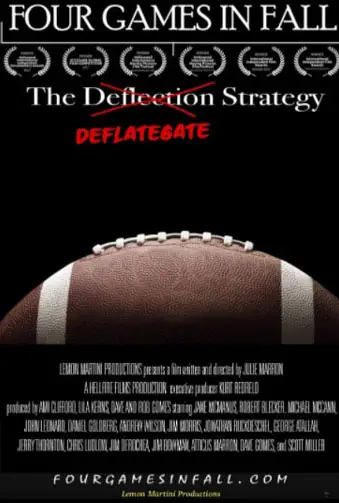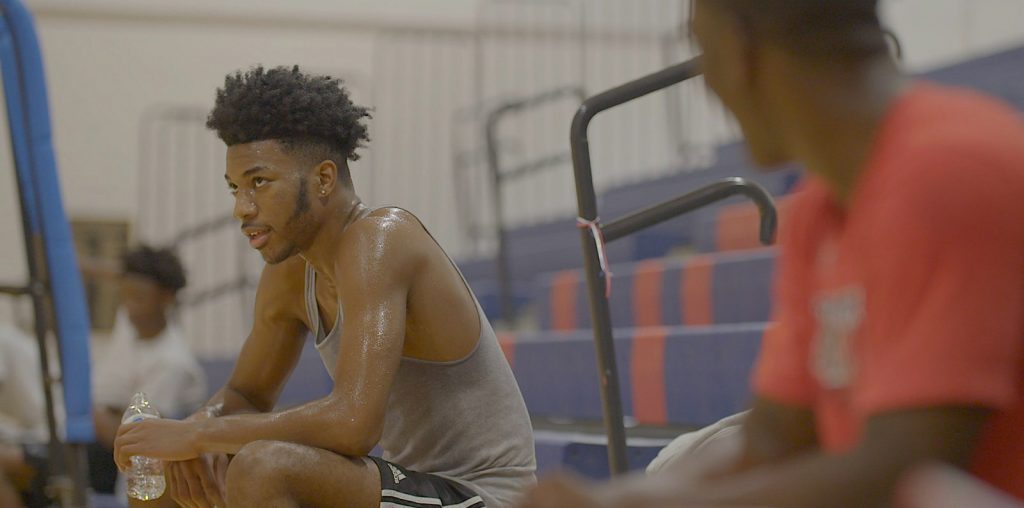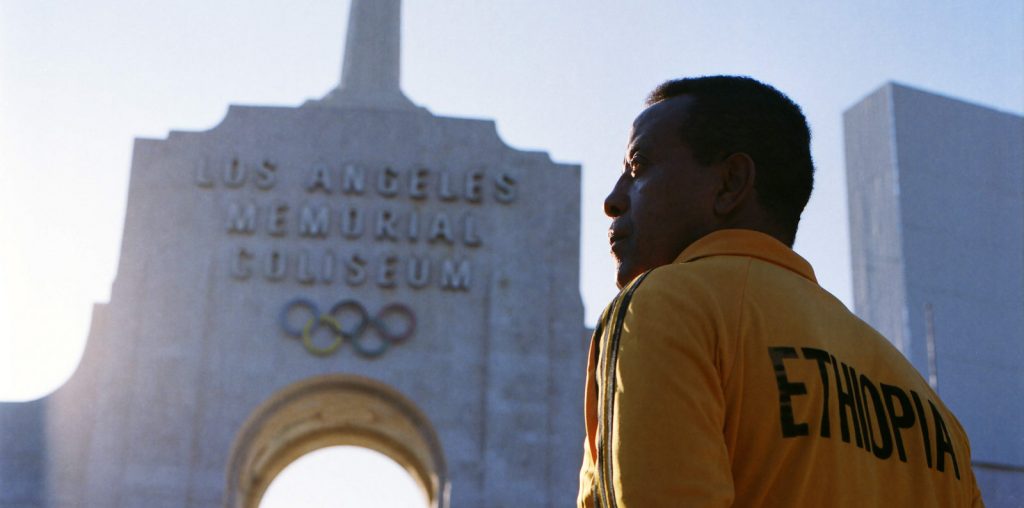
Four Games In Fall proceeds to systematically tear down the official story of “Deflategate” with a combination of scientific analysis and a critical view of how the NFL investigated and adjudicated the matter. On the first count, a rudimentary explanation of the ideal gas law, and some experiments performed by an independent laboratory, cast doubt on whether any accurate, credible measure of the pressure in the Patriots and Colts’ game balls were ever really taken during the championship’s fateful halftime period. At the very least, it’s an interesting science lesson, but it’s also an eye-opening attempt at pointing out just how shaky the supposedly empirical scientific foundations of the controversy actually were.
From there, the director’s assembled legal talking heads, including a Jets-loving New York attorney and a representative of the NFLPA (the players’ union that operates independently of the league), proceed to poke holes in the case. There’s the problematic Wells Report issued by the league’s investigators, for one, and the curious wording of an accusation that Brady “destroyed” potentially damning evidence of his involvement before he appealed the official decision. It’s a lot of material to sift through, but Four Games In Fall lays it all out cogently and with an engaging “stick it to the man” fervor.

“…the relevance to our current era’s business-, government-, and media-driven controversies is hard to miss.”
And, just like any good legal drama, a compelling villain soon begins to emerge: NFL Commissioner Roger Goodell, who the documentary alleges had ulterior motives for making an example out of Brady. This movie certainly isn’t the first media outlet to criticize his leadership, but it makes an unusually persuasive argument regarding Goodell’s inept handling of both his league’s domestic violence issues and the downplaying of traumatic brain injuries suffered by players. Goodell was desperate to save face in 2015, the interview subjects concur, and what better way to right his ship than to make an example out of his most dominant team and most recognizable player?
That, and a lot of other worthwhile questions, are posed by Four Games In Fall, and while the filmmaker doesn’t avoid expressing the sheer triviality of it all – think of all the money, the personal reputations, and the column inches of news expended over a couple of pounds of air pressure – they also shine a light on the big-picture issues that “Deflategate” exemplifies.
The film may not completely obliterate all of its rhetorical targets, but, especially in its questioning of “science for hire,” the relevance to our current era’s business-, government-, and media-driven controversies is hard to miss. And, for fans still harboring resentment from that brief, dark period in Patriots history, Four Games in Fall is can’t-miss.

"…just like any good legal drama, a compelling villain soon begins to emerge..."



It’s an important film to watch BUT it needs corrections for anyone seeking to truly understand the scandal: the film’s claim that “the NFL deliberately leaked false information about the data” is untrue, as is the claim that the NFL gave the Patriots erroneous data, the claim that the investigators under-appreciated the natural pressure losses, and the claim that the data was insufficiently complete and precise to settle the matter. The NFL report and the movie omit witness observations of the Colts’ balls having ~11.5 psi, down from 13, and the Patriots balls being under 11 psi at the very start of halftime. Those observations were the basis for the leaks. The NFL’s early and honest mistake was ignorance of the recent rule change that allowed the Patriots to legally set their balls to 12.5 psi to start with vs. the 13 used by the Colts. Once the controversy took hold, and once the NFL figured out their mistake, the NFL did elect to frame the Patriots by not clarifying the leaks, but did not engage in science denial as the movie claims, but rather “witness denial.” The later investigators hid and overruled massive amounts of witness testimony; all the lab tests were run in ways counter to multiple witness accounts about multiple things. The data was neither unreliable nor incomplete, which is fortunate because studying the NFL materials much deeper than the movie did produces an air-tight proof of innocence that renders moot all the circumstantial evidence against the Patriots that many reporters reasonably see as a making a strong case for cheating. Because the NFL made so much data public, including accidentally revealing crucial information during the appeal hearing, the data that was omitted can be calculated or deduced from the data that was disclosed. Watch the movie to appreciate the general dishonesty of the NFL and the science-for-hire industry, but to truly know what really happened and the full depth of the trickery and dishonesty, generally perpetrated without outright lies, read the book “Catching the Accusers,” which remains the only comprehensive analysis of Deflategate.